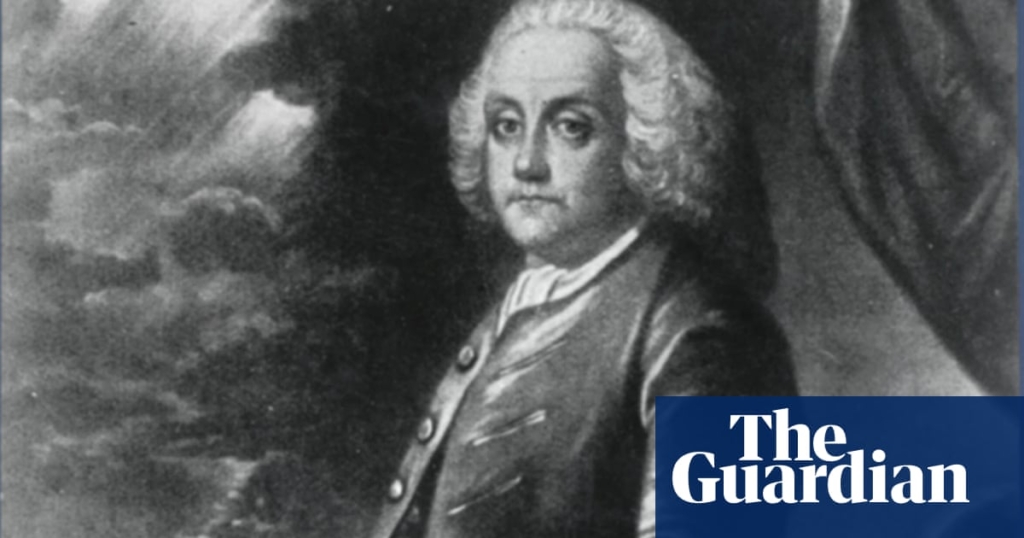Bu içerikte, yazar ve temiz enerji savunucusu Richard Munson’ın Benjamin Franklin’in bir bilim adamı olarak göründüğü yeni biyografisi olan “Ingenious” kitabını nasıl yazmaya karar verdiği hakkında bilgi verilmektedir. Munson, Franklin’in bilim adamı olarak çalışmalarını vurgulayarak, günümüz siyasetinde bilimi reddeden ve gerçekleri reddeden bir grup aktivist bulunduğu zamanlarda Franklin’in önemli bir mesajı olduğunu belirtmektedir. Ayrıca, Franklin’ın aşı reddi ile ilgili zor durumları ve kölelikle olan ilişkisi de ele alınmaktadır. Munson, Franklin’ın çeşitli konulardaki görüşlerini ve kararlarını ele alarak, onun Amerika’nın kurucularından biri olarak nasıl bir etki yarattığını ve günümüzde hala ne kadar önemli olduğunu tartışmaktadır. Bu içerik, Benjamin Franklin’in hayatı ve kişiliği hakkında bilgi vermektedir. Franklin, sendikayı anti-kölelik çoğunluğundan daha çok değerli buldu ve bu durumun iyi mi kötü mü olduğu tartışmalıdır. Ayrıca, Franklin’in bilimsel çalışmaları ve katkıları da vurgulanmaktadır. Munson’un biyografisi, Franklin’in politik kariyeri yanı sıra bilimsel çalışmalarına da odaklanmaktadır. Franklin’in sürekli olarak deneyler yapması ve yenilikçi fikirler geliştirmesi vurgulanmaktadır. Son olarak, Franklin’in bilimsel yönteme katkıları ve aydınlanma değerleri üzerinde durulmaktadır.
Kaynak: www.theguardian.com
Asked how he came to write Ingenious, his new biography of Benjamin Franklin presenting the American founder in light of his work as a scientist, the author and clean energy advocate Richard Munson offers “two reasons. One is that I’ve been fascinated with innovators. My last book looked at Nikola Tesla, who brought us the electric motor, radio remote control, the list goes on. And Franklin just seemed like another remarkable individual who brought new ideas to life.
“But it also struck me that at this time with our modern politics, he has great relevance – while there’s a growing group of activists that dismiss science and reject facts. Franklin was saying: ‘There’s nothing more important than experimentation, observation, verifiable analysis.’
“So it struck me as a chance to highlight one of our nation’s founders, probably our most popular one, who has relevance in this age when we’re so disjointed. He’s speaking out for civility and free speech and tolerance. That all struck me as an important message to get across.”
Munson is speaking from his home outside Chicago, a week after election day, when Donald Trump stormed back to power. News of the far-right president-elect’s intended appointments is leaching out. Robert F Kennedy Jr, a vaccine conspiracy theorist, is reportedly close to a position as a health policy “czar”. As it happens, Franklin had problems with vaccine denial too.
“It was an awkward position that he was in,” Munson says, of Franklin’s time in Philadelphia in the mid-18th century, a printer and newspaperman. “It was his brother who was the one that went after vaccines in particular, because he was trying to sell more newspapers by having a sort of contest with [the Boston minister] Cotton Mather, who was the pre-eminent religious figure [in the US colonies] but also really quite welcoming to science.
“Young Benjamin didn’t really speak out much, but didn’t try and stop his brother at the same time. Eventually Benjamin came around to embrace inoculation and express horror that his son died because he and his wife decided not to inoculate him against smallpox.”
Franklin’s politics remain relevant, too. In 1787, when the US constitution was written, he famously, supposedly, told a questioner the new government would be “a republic, if you can keep it”. That warning is regularly trotted out whenever Trump’s perceived threat to US democracy is discussed, not least in the present moment. But the real Franklin was never the sort of democratic demigod he is sometimes claimed to have been, serene above the partisan fray. Like the other people who shaped a new country, winning independence from Britain and writing the constitution, he was as flawed as he was great.
It might be said that instead of skeletons in his closet, Franklin had, as Munson puts it, “cadavers in his basement”. In 1998, at the house on Craven Street in London from which Franklin represented Pennsylvania between 1757 and 1775, workmen found a pit of human bones. They were leftovers from the work of William Hewson, an anatomist who set up shop in the house and died after contracting an infection from a corpse.
Eighteenth-century science was messy and dangerous. Franklin’s own experiments – most famously, flying a kite in a thunderstorm to show lightning was an electrical discharge – could have hurt him more than they did. In terms of his reputation, his ownership of enslaved people might do damage yet. His newspaper printed advertisements for the sale of enslaved people or seeking the capture of those who ran away; his household owned as many as seven enslaved people; and in London he was accompanied by two enslaved African men, Peter and King. Peter’s fate is unknown. King escaped and found refuge in Suffolk, where Franklin ultimately left him. Franklin’s views changed.
“Not everybody came around like he did at the end,” Munson says. “And the way that he came around, I think, is perfectly Benjamin. He writes this snide little story in response to a Georgia slave-owning legislator who says that it’s appropriate for plantation owners to enslave people because the Bible says it’s right and it’s necessary for their economy, and so on. Franklin writes the view of an ‘Algerian legislator’ that, in fact, the Koran says it’s just fine too and we’re enslaving Christians because they are the only ones who will do their dirty work for us.’ That’s one way to skewer the slave-owners.
“The challenge for a biographer is you have to sort of peel back Franklin’s voices. Because is he Sidi Mehemet Ibrahim? Not really. He’s Ben Franklin, putting on different personas, and he did that a lot, which wasn’t all that uncommon back then. But I think there’s power in that snideness. It was a way to approach slavery in a way that people would have to sort of step back and think: ‘Well, all right, maybe I need to rethink this.’ Obviously, they didn’t for a long time, but at least that was his attempt.”
By the time the constitution was written, Franklin wasn’t the only founder who opposed slavery but chose not to challenge the slave-owning states. The results are with us still: minority rule through a skewed constitutional structure, institutional racism deepening social division.
Munson says: “You can go back and criticize Franklin, if you want to, for not raising the slavery issue during the second constitutional convention, which was the appropriate time to do it. But he made the judgment call, most historians probably would agree, that it wouldn’t work. The southerners would have split. You wouldn’t have had a union. And he valued the union more than getting an anti-slavery majority. Was that a good or a bad thing? It was just the temper of the times.
“He fathered a son out of wedlock … he’s admitting he had a great time going to brothels and pubs. I think you can look back on those and sort of diss him … but he has multiplicities, as we all do. He tried to resolve them, but he couldn’t hide them. And I guess I was trying not to hide them, but I still come away with thinking this guy was really clever and fun.”
Munson’s biography is concise but comprehensive, a highly readable epic in 210 pages, no mean feat given all Franklin saw and did in his 84 years. As a legislator and leader, his civic contributions included helping to form the first Philadelphia public library, police force and firefighting company, and co-founding the University of Pennsylvania.
Munson’s focus on Franklin’s scientific work grew from his own career – including a stint as senior director of the Environmental Defense Fund – and a belief that Franklin the scientist has been relatively neglected by biographers generally focused on Franklin the politician and diplomat, particularly his time in France between 1776 and 1785, when he helped secure the alliance that ensured independence for America.
Amid it all, Franklin inquired and experimented ceaselessly, designing heating stoves, exploring the properties of oil and water, even inventing his own bifocal glasses. Munson says Franklin should not be seen as a mere hobbyist or tinkerer, and that his most lasting scientific contribution came “probably on electricity”.
“A lot of his theories are obviously outdated now, because we’ve got more sophisticated equipment and testing materials. So he doesn’t have anything that’s cutting edge at the moment. It would be crazy if he did. But I think he knew that would happen, and I think what he has brought us is more of a mindset, and that is one of the enlightenment values, of focusing on reason. Of relying upon your senses as means by which to obtain information. So I think what remains is sort of his outline for the scientific method.
“He will acknowledge almost joyfully that some experiments didn’t work out but, my goodness, they opened up new thoughts and perspectives that he didn’t have before. And wasn’t that fun? You’re thinking that the guy’s smiling all the time.”




Yorumlar kapalı.